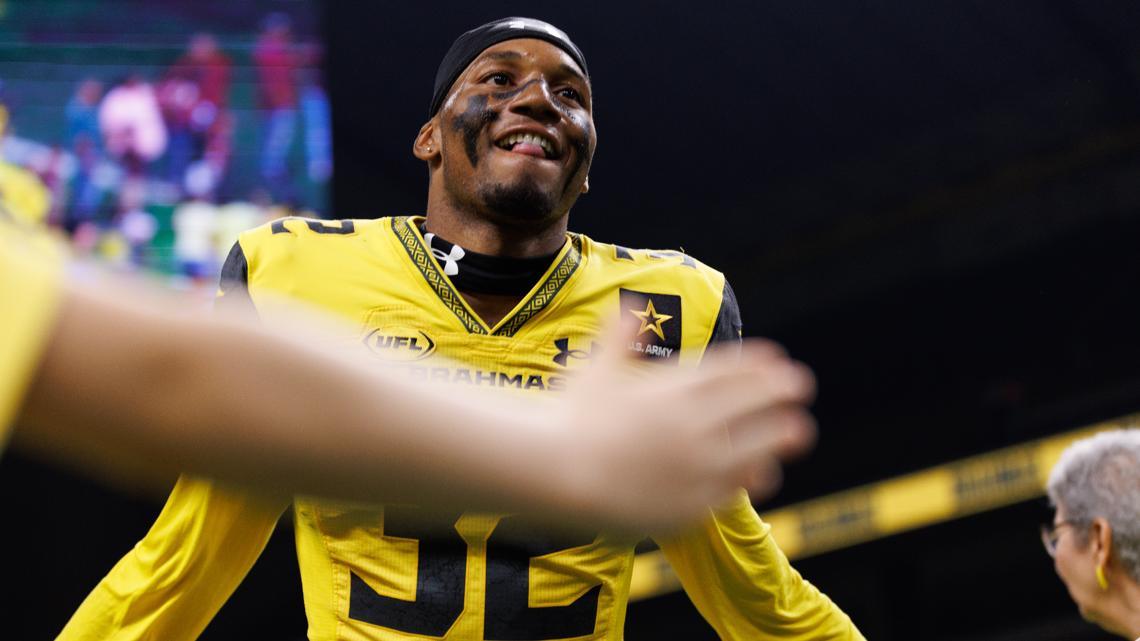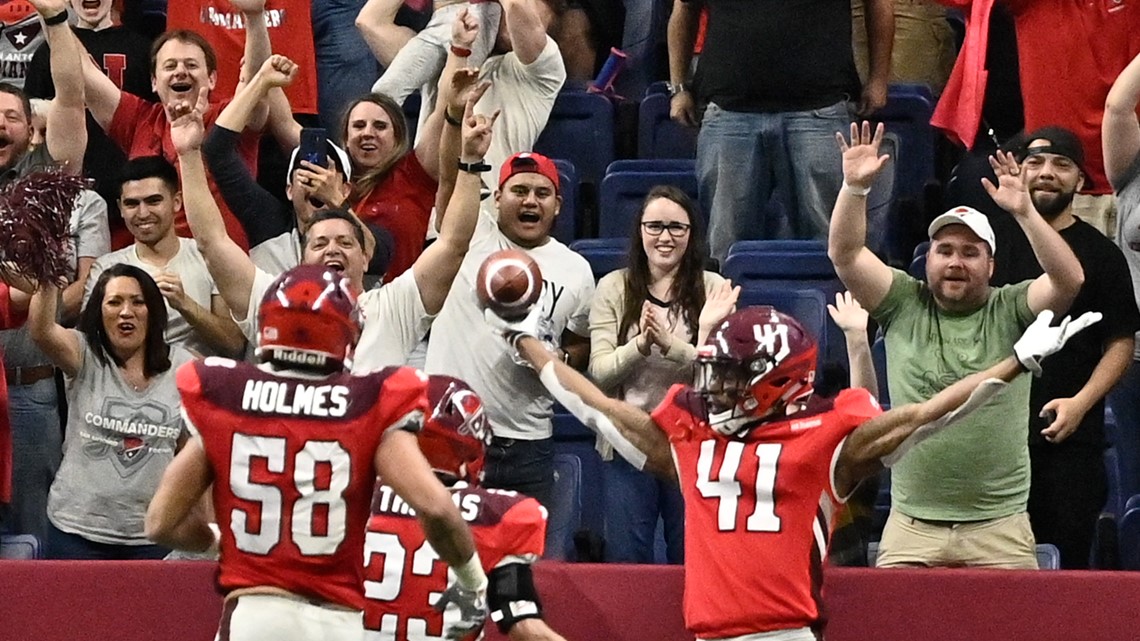[ad_1]
The key to UFL sustainability in San Antonio is simple.
SAN ANTONIO — The United Football League announced that Sunday’s league championship game between the Birmingham Stallions and San Antonio Brahmas was the highest-viewed spring football game since 2001.
It’s albeit slightly embarrassing for San Antonio, who was outclassed 25-0 in front of a reported viewing audience of 1.6 million people. But overall, a record viewing audience is great news for all involved with the league as they cap their inaugural season.
After all, the UFL itself is a result of audience consolidation; 2023 spring leagues XFL and USFL merged to form the current product. Two grassroots leagues were too much for audiences to handle, and the UFL merger was the only chance for survival.
In more good news for the UFL, Head of Operations (and former Dallas Cowboys fullback) Darryl Johnston indicated to Fox Sports on Tuesday that the league is full steam ahead to return next season.
Johnston added that rather than focus on league expansion, the UFL’s goal is to focus on growth in its eight current markets in Year 2. That’s a good call by Johnston, because the current markets’ fan bases could use a jolt.
In San Antonio, where the Brahmas just wrapped up their second season of existence, home game attendance at the Alamodome actually went down from 2023’s XFL season to 2024’s UFL campaign. In fact, home attendance for every team from the previous XFL saw a decrease in 2024 compared to last year.
Only the St. Louis Battlehawks have seen legitimate continuity from their fan base, drawing a raucous 34,000-plus fans per game in both 2023 and 2024.
The crowds in St. Louis just feel professional from an outside perspective. When the Brahmas beat the Battlehawks at “The Dome” in the conference championship, it felt like they knocked off a ranked college powerhouse on the road.
The UFL should see what is happening in St. Louis and be energized by their prospects.
But the short-term answer for UFL sustainability is easily within its control: Remove the league hub in Arlington and let the teams practice in their market cities.


The current bubble structure is almost reminiscent of sports in the COVID-era.
For the past two seasons, each league team has spent their week preparing for games at a centralized league location in the Dallas metro. For example, the Brahmas spent 2024 practicing at Southlake Carroll High School’s Dragon Stadium. After conducting workouts remotely and doing media sessions over zoom, the teams would then fly to their “market city” a day or two before the game before heading back to Arlington when the game concluded.
On occasion, opposing teams would be on the same flight back to the Dallas hub after the conclusion of their games. Imagine scrapping in the trenches against an unknown player from a rival team, and then ironically squeezing next to him in Row 20 on a charter flight four hours later.
For teams like the DC Defenders and Michigan Panthers, that’s at least six hours of air travel each week. I can’t imagine the Arlington bubble is saving the UFL that much money.
But the disconnect that the bubble puts between the players and their home fans is what hurts far more than monetary cost.
In a city like San Antonio, where athletes are beloved members of the community, the Brahmas have serious potential to earn allegiance. Texas is a football state, and with no NFL team in the Alamo City, fans are clamoring for the sport.
The blueprint for spring football in San Antonio is already laid out. In 2019, the San Antonio Commanders of the Alliance of American Football (AAF) drew an average of over 27,000 fans for home games at the Alamodome. Those numbers were over a span of just four games in a two-month span, and yet they still doubled what the Brahamas average.


Darryl Johnston, of all people, should recognize San Antonio’s potential. He served as the Commanders’ general manager.
Fans shouldn’t knock on the Brahmas players for not being here. They want to be in San Antonio growing the team with the community they represent.
Not to mention, the UFL’s on-field product was really strong this year.
Since the UFL season formally ended on Sunday, 11 UFL players have reportedly signed with NFL teams, including Brahmas DL Prince Emili and Battlehawks LB Willie Harvey Jr., who are joining the Atlanta Falcons and Dallas Cowboys, respectively. Dozens more will receive invites to training camp.
The 2024 UFL season was by far the most competitive on the field, which should motivate the NFL itself to keep it around as a feeder. But as a brand, the UFL should see its own opportunity.
It’s not supposed to be easy, especially when it comes to spring football. Fans want to know that the teams they support won’t be taken away from them.
But how do you expect a plant to grow if the seed isn’t even in the ground?
Bring the Brahmas to San Antonio full-time, where they should have been all along. Because if you show the fans you care, they’ll do the same thing right back.
[ad_2]











